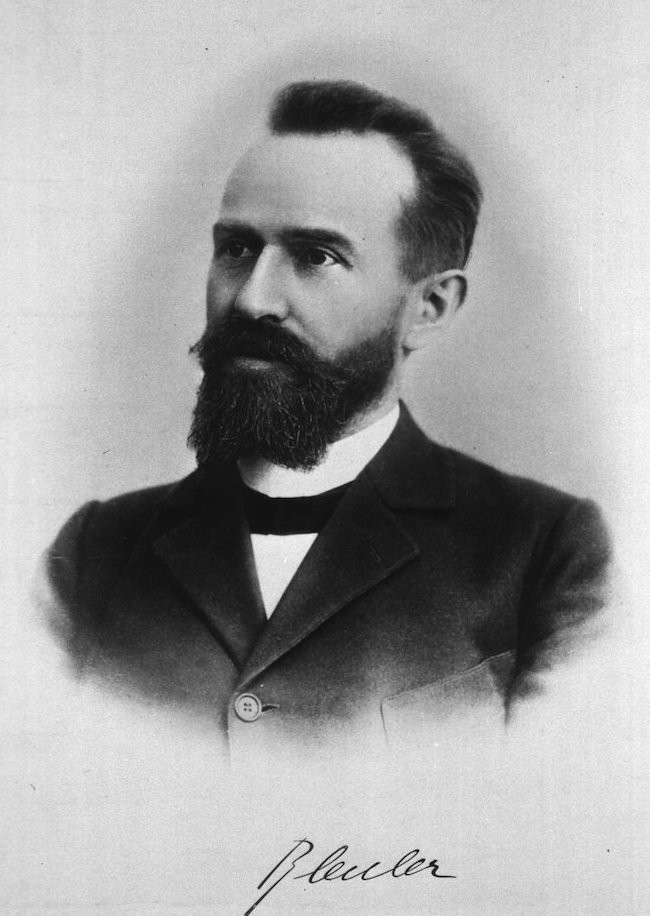
Paul Eugen Bleuler. Source: US National
Library of Medicine (public domain).
Born in Switzerland, Paul Eugen Bleuler (1857-1939) was Freud's nearly exact contemporary. Bleuler studied medicine at Zürich and trained at the Waldau Hospital (1881-84) with the psychiatrist Johann Gottlieb Burckhardt (1836-1907). In 1885, he began to study with Charcot in Paris, followed by stints in Munich, London, and finally Zürich, where he worked with Auguste Forel. After completing a psychiatric residency at the Burghölzli Hospital Clinic in Vienna, Bleuler moved to Rheinau, where he took over the directorship of a neglected mental hospital located on an island on the Rhine. In 1898 Bleuler was made Professor of Psychiatry at Burghölzli.
By 1900 Bleuler had attracted C. G. Jung as a resident clinician studying schizoid conditions (Kraepelin's dementia praecox). Bleuler first encountered the works of Sigmund Freud in 1902. By the autumn of 1904, Bleuler, at Jung's prompting, had begun to correspond with Freud. Freud's valuation of his new adherents - his "Zürichers" - was immediate and high, and he eventually credited Bleuler with the invention of such important psychiatric terms as "schizophrenia" and "ambivalence." A number of key followers of Freud's new psychoanalysis, including Max Eitingon (1881-1943) and Karl Abraham (1877-1925) were also already studying at Bleuler's prestigious clinic. Between 1911 and 1914, Freud came increasingly into conflict with his followers. During this period he strenuously tried to retain Bleuler's loyalty. Bleuler responded ambivalently, repeatedly joining and resigning from the Vienna Psychoanalytic Society.
Bibliography
Bleuler, Eugen. Textbook of Psychiatry. New York: Macmillan, 1924.
Bleuler, M. "Eugen Bleuler and Schizophrenia." British Journal of Psychiatry (1984) 144: 327-8.
Jones, Ernest. The Life and Work of Sigmund Freud. Vol. II. London: Hogarth Press, 1955.
Created 24 February 2021